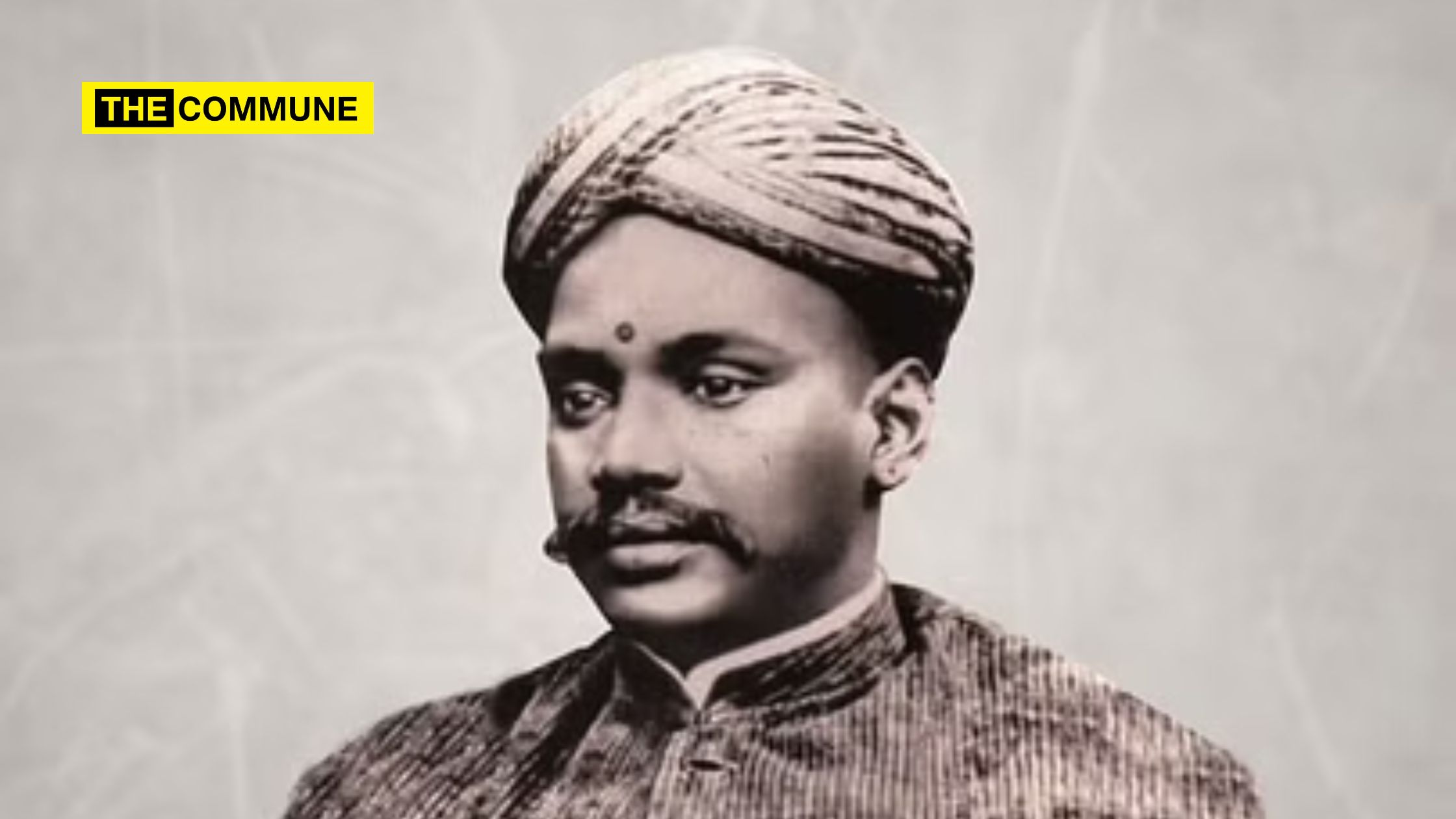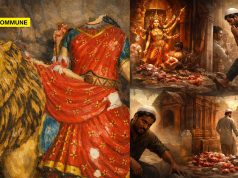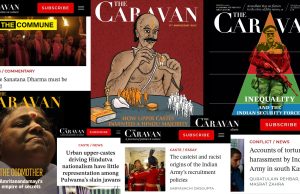
We all celeberate the freedom fighters who have toiled under harsh conditions, under the repressive British rule, almost lost their prime youth and suffered mentally and physically. But have we ever cared to know what the freedom fighter’s family are doing after the demise of the freedom figthters. We hardly take any interest. The Government also don’t care about them. Most of their legal heirs live in abject poverty or come up in life after their 3rd or 4th generation fight hard to have a decent life. Not only the freedom fighters have to be remembered but also their legal heirs who never expected neither special allowances nor any reservations.
We are going to see one such Freedom Fighter. The ‘Chekkizhutha Chemmal’, ‘Kappalotia Tamilan’ the great freedom fighter Vallinayagam Ollaganathan Chidambram Pillai, popularly known as V.O.C in English.
Early Life
V.O.C. was born in a small town Ottapidaram in Thirunelveli District on 5th September 1872 to Olaganatham Pillai and Paramayi Ammal. He was named after his grandfather as ‘Chidambaram’ which was the customs those days. He was born into a family of lawyers, then it was called “Pleader”.
During his school and college days he was very aggressive and a turbulent young man. He trained in horse riding, boxing, silambam, tree climbing, archery,shooting and swimming. Fearing his aggressive and daring nature, his father Ollaganathan Pillai constantly kept him under check. After a brief exploration of world in Madurai, Chidambaram Pillai returned to Ottapidaram, briefly worked in the Taluk office as a clerk. He did not like the routine mundane government job and expressed his desire to study law and to become a Pleader like his father and grandfather. Olaganatham Pillai was elated and sent him to study law in Trichy. V.O.C appeared in the Pleadership Examination of the High Court of Judicature of Madras and passed out in Second Grade.
He set up his practice as Ottapidaram and specialised both civil and criminal pleadings. He became very popular among the people of Ottapidaram and its surroundings towns of Koilpatti, Tuticorin and Maniachi. He appeared free for poor people and peasants and earned a title of ‘Poor Man’s Lawyer’ . The administration feared Advocate Chidambaram PilliaI. Police was always having an eye on Chidambram Pillai who was able break most of the falsely implicated Police cases. He also earned much more than his father and grand father and became one of the well-known families in Thirunelveli District.
Two cases can be quoted for his brilliant approach of law and his attitude to stand by the truth.
In the first case a police head constable was attacked and a case was filed against the accused. To prevent Chidambaram from appearing for the accused, the Police named Chidambaram Pillai also in the case. They also secretly negotiated with Chidambaram Pillai that his name would be removed from the accused list if he promised not to appear for the accused in the case. Sensing the trick Chidambaram Pillai agreed not to appear for the case. The Police removed Chidambaram’s name from the list of accused and presented the case for hearing. But on the day of case hearing, Chidambaram promptly appeared in the case and won it. Since the understanding with the Police was unofficial and private Police count not do anything.
The second was a civil case very interesting one which made the son and father stand against each other in the case. A poor farmer had taken borrowed money from a local English man. The farmer’s relative who eyed a ancestral property owned by the farmer. He connived with the English man and filed a case in the court. The Englishman engaged Ollaganatham Pillai, Chidambram Pillai’s father as his lawyer. The poor farmer not knowing what to do went to Chidambram Pilliai for help.
On the day of hearing the Magistrate asked the farmer if he had no ‘Vakil’ to plead his case. When the farmer could not reply, the court hall heard a booming voice of Chidambaram Pilliai ‘Here I am’ I would be appearing for the farmer’. Thus, this case pitted Chidambaram Pillai against his father for the sake of helping poor people and also stand by truth. He won the case for the farmer Madasamy who remained loyal to him for ever and participated in the freedom struggle. Infact some of the English Magistrates and Judges were all praise for V.O.C.’s knowledge in law.
V.O.C met Subramania Bharathi and Subramania Siva during the Surat Congress meet and developed liking to them. He supported the militant way of Bala Gangadar Tilak.
A Pioneer Of Swadeshi
To encourage swadeshi business and boycott British made things he established “Swadeshi Stores” to sell locally made produces. He also understood that British make money by doing business.
In those days exports and imports generated huge profits. Chidambaram Pillai realised that to sustain Freedom fight and to organise meetings and dharnas needs money. Donations are not the solutions he reasoned. Hence, he devised an idea, to hit British where it hurts.
Accordingly, he had decided to float a Shipping Company against Monopoly business of British Steam Navigation Company. Inspired by the Swadeshi movement, V.O.C. mobilised the support of local merchants, and launched the first indigenous Indian shipping enterprise, the “Swadeshi Steam Navigation Company”, thus earning for himself the name – “Kappalottiya Tamilan கப்பலோ ட்டிட் ய தமிழன்”. The Swadeshi Steam Navigation Company was registered on the 12th of November 1906. The company had a capital of Rs.10 lakh with 40,000 shares. He purchased two steamships, S.S. Gallia and S.S. Lawoe for the company and commenced regular services between Tuticorin and Colombo against the opposition of the British traders and the Imperial Government. His efforts to widen the base of the Swadeshi movement, by mobilising the workers of the Coral Mills (also managed by A. & F. Harvey) brought him into increasing conflict with the British Raj.
On March, 9th 1908 he along with Subramania Siva, and Subramaniya Bharathi, staged a dharna against the attorcities committed by Collector Wynch.
On 12 March1908, he was arrested on charges of sedition and for two days, Tirunelveli and Tuticorin witnessed unprecedented strike which triggered violence, quelled only by the stationing of a punitive police force. But newspapers had taken note of VOC. This was the first General strike witnessed by the British regime.
Yoked Till He Died
The Court imposed a sentence of two life imprisonments (in effect 40 years). The sentence was perhaps a reflection of the fear that the British had for VOC and the need to contain the rebellion and secure that others would not follow in Chidambarampillai’s footsteps. Appeal after appeal filed and finaly the sentenced were reduced. V.O.C. was confined in the Central Prison, Coimabtore from 9 July 1908 to 1 December 1910.
While he was in prison the British Steam Navigation Company conspired with the directors of the “Swadeshi Steam Navigation Company” and bought over the 2 ships and the company. Thus, in the year 1910 the “Historic First Swadeshi Steam Navigation Company” came to an end.
Apart from the Madras press, even the Amrita Bazaar Patrika from Kolkata (Calcutta) carried reports of V.O.C prosecution every day. Funds were raised for his defence not only in India but also by the Tamils in South Africa. Bharathy gave evidence in the case which had been instituted against him.
The British response was brutal and harsh. And the Swadeshi movement was quelled by treating the activists languishing in jail with hard labour and un hygienic conditions. VOC in prison, was left to fend for himself. Surprisingly no body was there to help him.His wife, Meenakshi Ammal, followed him from the Tirunelveli sub jail to the Coimbatore and Kannur central jails, where he spent his term and almost single-handedly organised.
He was not treated as a ‘political prisoner’ he was treated like a criminal and had to undergo brutal physical work. One such work was to run the oil mill. Instead of the bull locked to the yoke, Chidambaram Pilliai was locked to the yoke and made to extract oil. He was asked to wear rough jute cloth.The British was trying to brake V.O.C’s mind and body. He endured all this though his health conditions deteriorated badly. He was released with a condition that he should not participate in any freedom struggle nor write anything against Britshers. His Pleader’s license was cancelled to make it worse to Chidambaram Pillai. Finally, he was released from prison on 12th December 1912.
He moved the court to get his Pleader’s license restored. A British Magistrate George Wallace after hearing V.O.C s knowledge ordered the restoration of his Pleader’s license. Pillai moved to Chennai with his family and started his practice and also started publishing books. Since it was not bringing enough revenue to meet the family needs, he also started a grocery shop and kerosene depot to earn some additional money. When things were going from bad to worse, he moved to his native and started practising in Kovilpatti court.
Finally, he fell ill and died in the year 1936, 18th November by hearing the poem of his great friend Subramania Bharathi. Ironically, he died in the Indian National Congress office, indicating that he died for the cause of nation and Indian National Congress.
He wrote several books. Some of them Meiyaram, Meiyarivu, Autobioagraphy and commentary on Thirukural. He also wrote commentary on Tamil Grammer book ‘Tholkapiyam’
Legacy
Several statues have been erected to commemorate his life, some of them are
• At the entrance of the Congress committee office, Royapettah, Chennai (1939).
• At the arch of Palayamkottai, Tirunelveli.
• At Marina beach, Chennai. (unveiled at the World Tamil Conference).
• At the port, Thoothukudi.
• At the Entrance of Kattu Paramakudi (V.O.C. Mahal) unveiled at 18 November 2012.
He was also honoured by Govt. of India by releasing a Postal Stamp. Tuticorin Port was named after him. Theni and Bodi busstands were named after him. It is also noteworthy to mention here the Actor Sivaji Ganesan had brought the great patriot alive in his potryal as Chidambaram Pillia in the movie ‘KAPPALOTIA TAMILAN’ produced and directed by B.R.Panthulu.
A stauch believer of Dharma he never forgot the people who helped him. He named one of his daughter as Vedavalli not to forget the help he received from one of the rich family.
He also named one of his sons as Walleswaran in praise of Judge Wallace of Madras High Court who ordered to restore his Pleader’s license.
Click here to subscribe to The Commune on Telegram and get the best stories of the day delivered to you personally.




